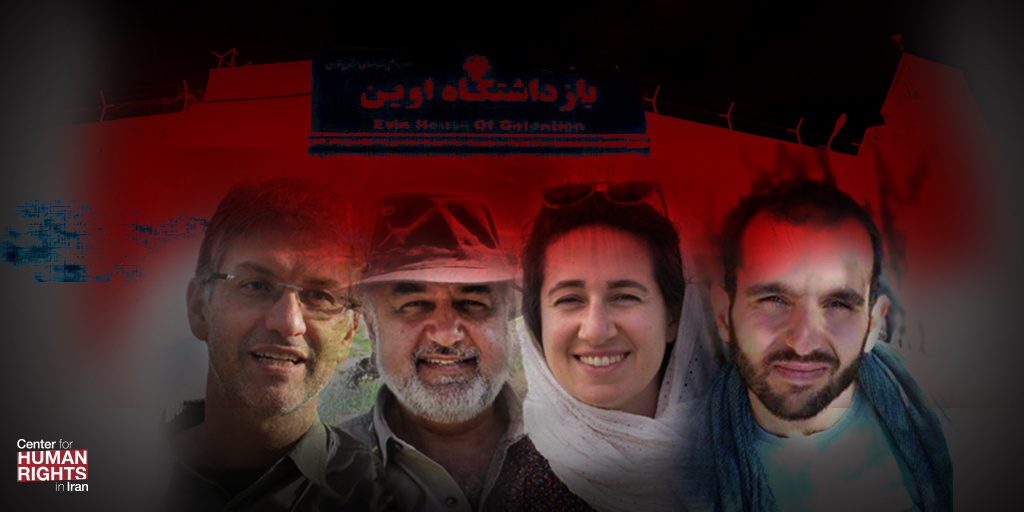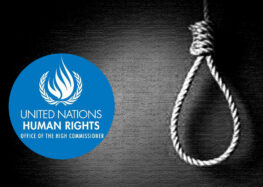Jailed Under Lengthy Sentences, Iran’s Conservationists Suffer Ongoing Rights Violations
 Detainees Punished for Complaining That They Were Forced to Make False Statements, Says Lawyer
Detainees Punished for Complaining That They Were Forced to Make False Statements, Says Lawyer
Iranian authorities are refusing to transfer imprisoned conservationist Sam Rajabi to the hospital to treat a serious medical condition, and are continuing to hold three of his colleagues in solitary confinement without legal justification, the Center for Human Rights in Iran (CHRI) has learned.
“It appears that the authorities are punishing them for objecting to the [preliminary] court’s decision and insisting that they had confessed under pressure and deception,” said Tehran-based attorney Mohammad Hossein Aghasi in an interview with CHRI on December 11.
Radjabi’s sister shared news about her brother’s condition via her Twitter account.
“Today they again refused to issue a hospital transfer order,” tweeted Katy Radjabi on December 10, 2019. “They have kept my brother in temporary detention for 20 months and sentenced him to six years in prison without any evidence, and now they are preventing him from getting treatment!… Why won’t you end his suffering?”
The physician in charge of the clinic at Evin Prison recommended Rajabi be hospitalized to undergo an operation for hemorrhoids, his sister added.
Meanwhile, three of Rajabi’s fellow imprisoned colleagues—Morad Tahbaz, Niloufar Bayani and Houman Jowkar—are being held unlawfully in solitary confinement in Evin Prison’s Ward 2-A, under the control of the Islamic Revolutionary Guard Corps (IRCG).
In November 2019, Tahbaz and Bayani were sentenced to 10 years in prison and Jowkar to eight years. They have appealed their sentences.
“Keeping the conservationists in solitary confinement has no legal foundation,” Aghasi said. “It’s a violation of the law and a denial of prisoners’ rights.”
Aghasi was chosen by Rajabi and fellow imprisoned conservationist Taher Ghadirian to act as their counsel, but Judge Abolghasem Salavati banned Aghasi from working with them.
“They are keeping them in solitary and refusing to transfer them to a public ward… in violation of the law,” he added. “Solitary confinement should have ended after the completion of preliminary investigations. But it continued even after indictments were issued and despite the fact that the [preliminary] trial has been held and sentences have been handed down. This is blatantly against the law.”
The attorney continued: “They had made promises to Tahbaz and Bayani in order to trick them into making confessions, but the promises weren’t kept. During the trial, Bayani interrupted the reading of the indictment several times and shouted that she had been deceived and that none of the accusations were true.”
The conservationists’ imprisonment has been widely condemned by international human rights and conservationist organizations.
In January 2018, nine conservationists, all current and former staff members of the Persian Wildlife Heritage Foundation (PWHF), were imprisoned by the IRGC’s intelligence organization.
Less than three weeks after being detained, PWHF managing director Kavous Seyed-Emami, a professor of sociology and war veteran who was also a Canadian citizen, died under suspicious circumstances while held for interrogations in Evin Prison.
The Iranian authorities did not hold anyone accountable for Seyed-Emami’s death, but his colleagues remained imprisoned for more than a year while the IRGC and prosecution pursued a case against them on espionage charges.
The prosecution continued even after the country’s Intelligence Ministry and Supreme National Security Council publicly refuted the IRGC’s claim that the conservationists had committed espionage.
In October 2019, the charge of “corruption of earth,” which can lead to the death penalty, was dropped against four of the conservationists after rare intervention in the case by Supreme Leader Ali Khamenei.
In November 2019, the United Nations Environment Program strongly criticized the Iranian authorities’ decision to respond to “legitimate conservation efforts of environmentalists by criminalizing their actions.”
Read this article in Persian.






